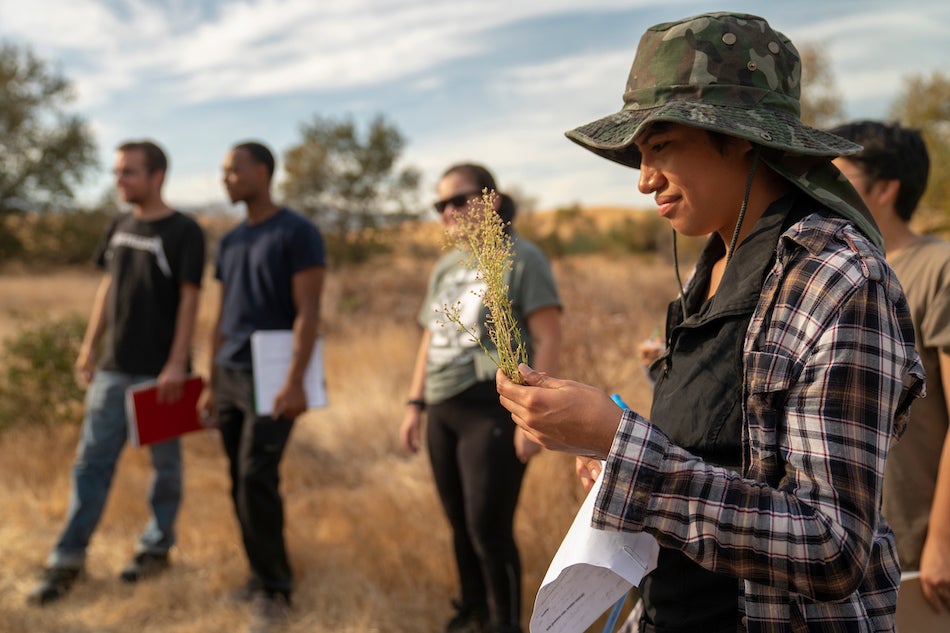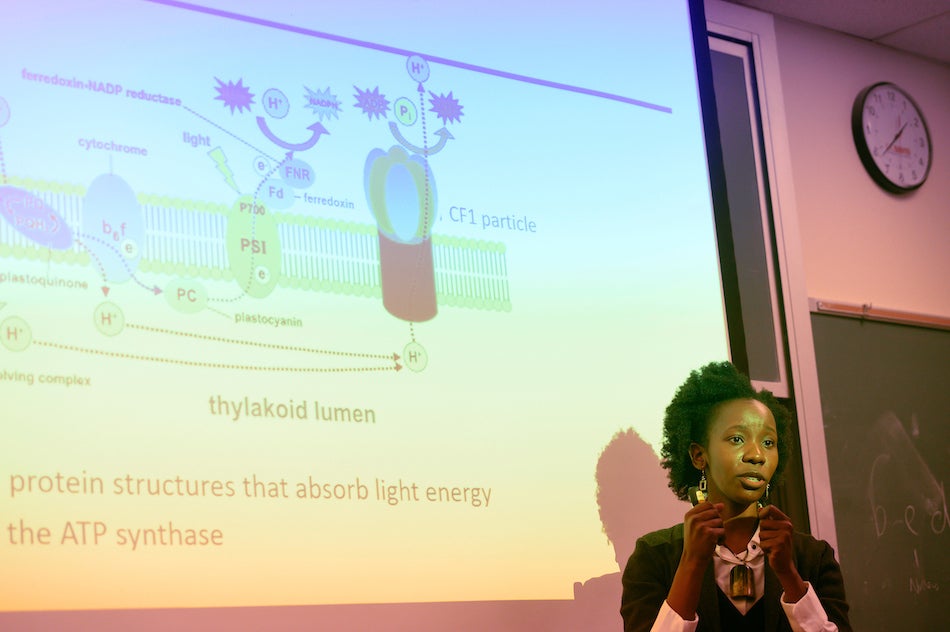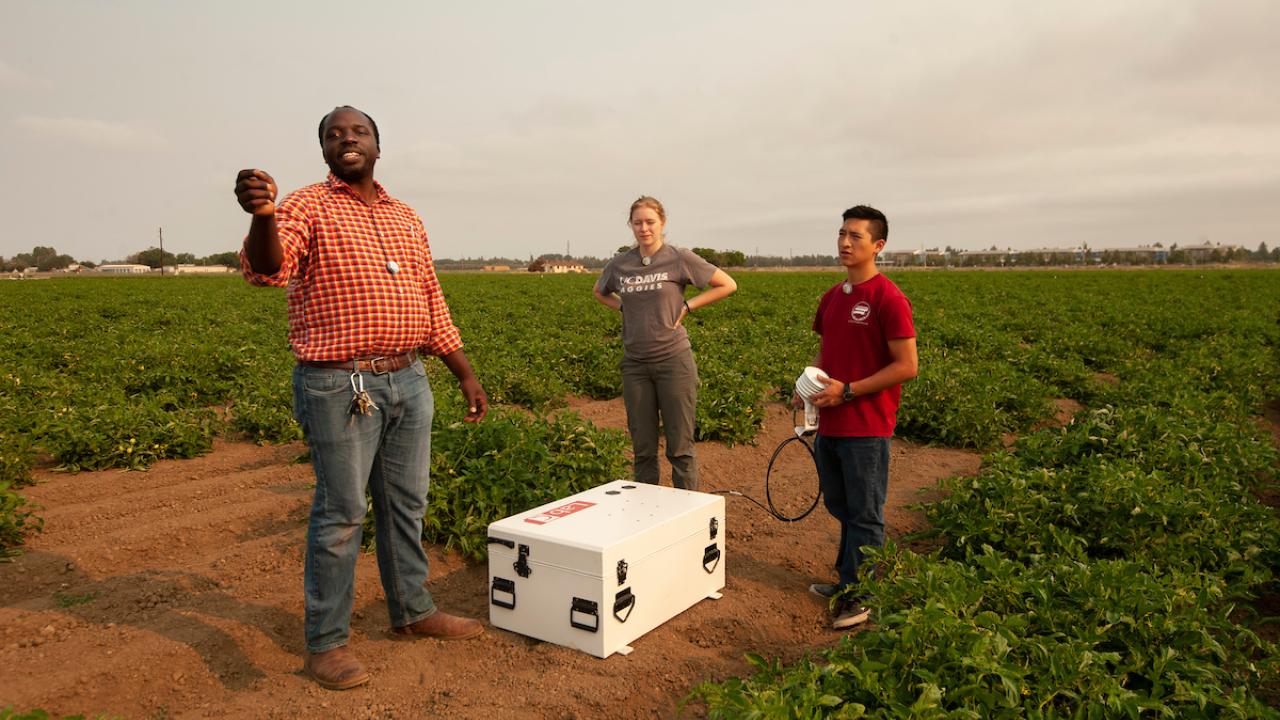Every day, citizens around the world are awakening to the fact that environmental protection is an absolute must. They are demanding that their governments and businesses take action to solve global issues.
Increasingly, there is a need for environmental professionals to make a greater impact, and fast. Water scarcity, renewable energy, biodiversity loss, a skyrocketing global population and food security — while frightening — also offer opportunities to find solutions to the most critical issues of our time.
At UC Davis, environmental policy and planning, or EPAP, majors are at the forefront of meaningful and rewarding careers — as an environmental lawyer, a city planner or an environmental consultant, to name a few — that will make planet Earth more sustainable.
Environmental majors benefit from our location

UC Davis is at the center of everything.
Nestled in a strategic position between the major cities of San Francisco and Sacramento, UC Davis is truly in a privileged geographic location, especially for those interested in environmental law.
“UC Davis’ proximity to Sacramento is significant because some of the most important environmental legislation in the country happens in Sacramento,” said environmental researcher and EPAP major adviser Gwen Arnold.
There are plenty of opportunities to intern at the state capitol or work with leading senators. UC Davis students experience relatively low competition due to the small class size of the EPAP major — 250 enrollees total.
In Sacramento, EPAP students have the opportunity to draft, develop and implement environmental policy and gain valuable work experience.
For those interested in working for private industry, UC Davis is about an hour drive from San Francisco, a global city with small and large environmental companies and start-ups, all looking for educated students to fill internships.
EPAP talks, seminars and courses
- Reducing the Impacts of Agricultural Nutrients on Water Quality across a Changing Landscape
- Organic Agriculture and Organic Soil Fertility’s Effects On Greenhouse Gas Emissions
- Introduction to Unmanned Aircraft Systems (Drones) for Agriculture and Environmental Science
- C2C Sustainability Leadership Conference
- Zero-Net Energy at UCD D-Lab
- Food, Agriculture, and Economic Development Group
And in Davis itself, with its idyllic, tree-lined streets and small-town, community feel, the city nurtures the next generation of environmental leaders. The weekly farmers markets, greenbelts in all directions and enthusiastic biking culture (read: low CO2 emissions) will have you feeling grounded and inspired as you immerse yourself in nature.
As the greenest UC campus, UC Davis is ranked 1st in the world for campus sustainability, boasting the largest zero-net energy real estate development project in the country.
To top it off, UC Davis is 1st in the nation and 2nd in the world for agriculture and forestry — hence, “Ags” or “Aggies,” referring to agriculture. Federal agencies such as the Environmental Protection Agency, U.S. Fish and Wildlife Service and National Parks Service target UC Davis students for job recruitment.
Choose a path in environmental science that fits you

The EPAP program offers dozens of opportunities to follow where your curiosity takes you.
There are eight differentiated tracks within the major program that allow you to specialize in the field.
- Environmental Policy & Politics: Developing environmental policies, analyzing a variety of alternatives and solving complex social and environmental challenges.
- City and Regional Planning: Urban and land-use planning, public lands management and community development.
- Water Management: Water quantity and quality solutions, assuring effective management of a valuable resource.
- Integrative Policy: Create your ideal program by combining multiple specialization areas such as natural resource economics, environmental hazards or sustainable development.
- Energy & Transportation Management: Energy systems, natural resource economics, transportation and sustainability.
- Climate Change Policy: Air quality design and implementation through environmental economics and climate science.
- Conservation Management: Uplifting living biological resources at the local and global level through water policy, ecology, and international conservation and development.
“(EPAP) is a very unique major that doesn’t really exist at other universities,” said EPAP advisor Melissa Whaley. This is in part due to the highly specialized course offerings that were created with future employers and challenges in mind. These comprehensive specializations offer an opportunity to establish a variety of career paths.
Note: How do EPAP and environmental science and management, or ESM, majors differ?
“The way I typically describe it,” Arnold said, “is that students who are interested in working as forest rangers or park managers should choose the environmental science and management track as they will apply scientific knowledge to the natural world around them. Whereas those interested in drafting policy or working as planners or consultants should choose EPAP as it will provide them the knowledge to draft policy or implement sustainable design.”
The time is right for environmental scientists

EPAP facts
- The median salary for Environmental Scientists and Specialists is $71,130, according to the Bureau of Labor Statistics.
- UC Davis offers a Bachelor of Science rather than a Bachelors of Arts degree for EPAP majors. This teaches you the fundamental scientific knowledge upon which to build a rewarding environmental career.
By 2024, an EPAP graduate’s skills will be in high demand. “The green technology and sustainability market size is expected to grow from $8.7B in 2019 to $28.9B in 2024, at an Annual Growth Rate of 27.1 percent, with North America to hold the largest market size during the forecast period,” according to MarketsandMarkets. Careers in environmental policy, private industry and sustainability are growing.
And where do students go after graduation? While nearly one-third of UC Davis EPAP graduates head to law school within a few years of completing their undergraduate degrees, EPAP graduates go on to work in fields such as:
- Environmental planning
- Transportation planning
- Environmental economics
- Environmental policy analysis
- Urban planning
- Environmental education
- Environmental accounting
- Data science
Pablo Loayza is an environmental planning student and writer with the Office of Strategic Communications at UC Davis.
